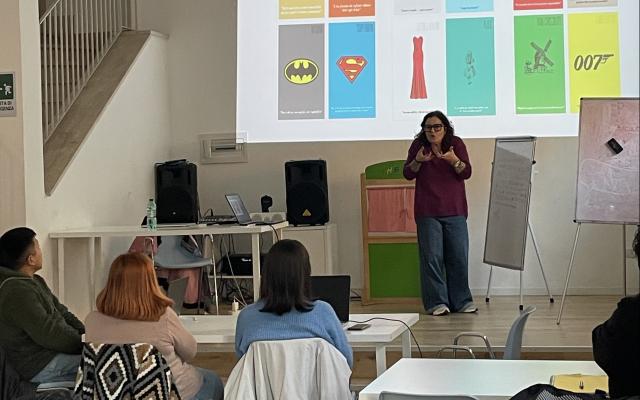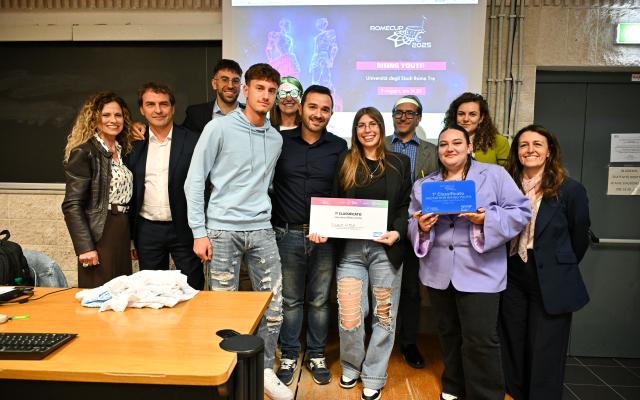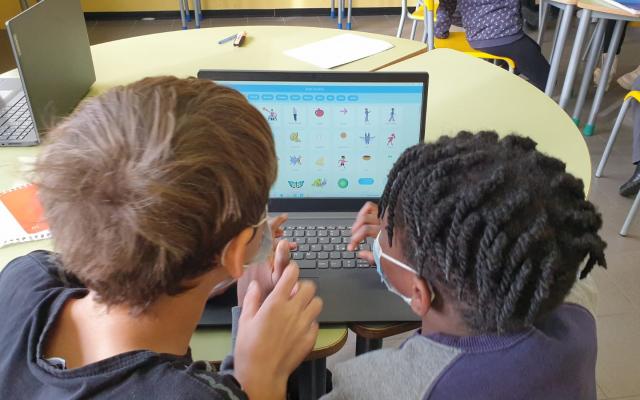An installation developed at the IC Elisa Scala Fab Lab
The Borghesiana-Pantano neighbourhood, one of Rome’s areas with the greatest level of social unrest [see data: mapparoma.info], a small lab opened at the first-degree secondary school complex of the Istituto comprensivo Elisa Scala, directed by Claudia Gentili, is becoming a local cultural motor.
“The socio-economic and cultural background of the students is very low with serious issues and cases of marginalisation. The percentage of non-Italian students is 26% and that of certified students is 8%. In recent years, there has also been an increase in settled Roma students and students followed by social services. The school population is in constant growth, generating issues due to numbers, crowded classrooms, and waiting lists for kindergarten. The percentage of disadvantaged students exceeds both the national and regional averages […]" (from the school curriculum).
In a “suburban environment with little green and spaces for aggregation and cultural promotion,” with “social, economic and widespread cultural poverty,” a digital manufacturing lab (Fab Lab) was equipped at the school thanks to a memorandum of understanding with the Rome’s Special Supervisory Committee for the nearby Gabii Archaeological Area. This gave rise to the Veni, Vidi, Gabii Project which “involves students, during school hours, as well as in afternoon Fab Lab activities, the school’s flagship.”
In May, the school inaugurated an exhibition-installation showcasing the finds, beauty, vision, maps and legs of the journey that students undertook to discover Gabii. The Minestudio Communications Agency, which has taken the project under its wing, developed a fundraising campaign to finance accessibility to Gabii. Moreover, it has promoted the Gabii Observatory, the first local positive-impact project, in collaboration with the school and the Special Supervisory Committee.
Here are some photos taken by maker Daniele Vigo who collaborated as a coach at the school’s Fab Lab, a satellite lab developed thanks to Project Smart & Heart Rome (Municipio VI) and the interviews with some of the students (filmed directly on a smartphone).





